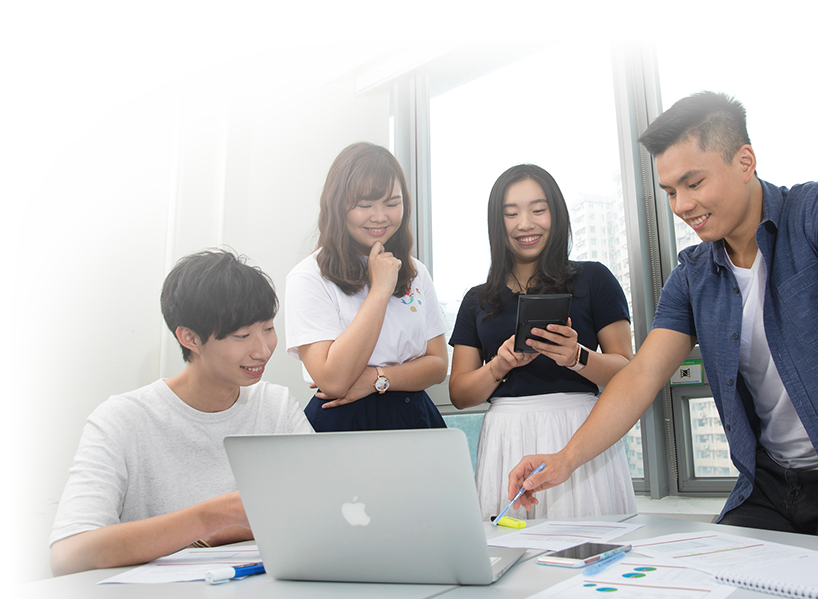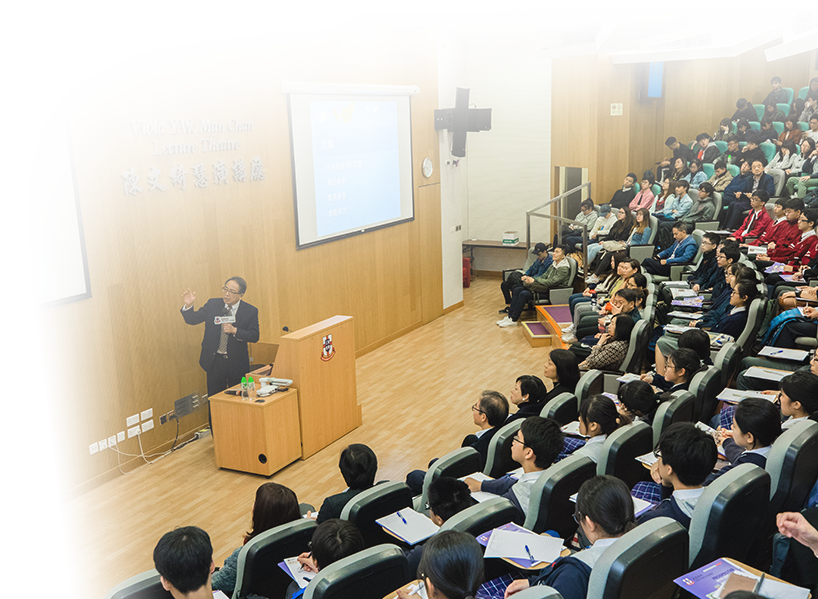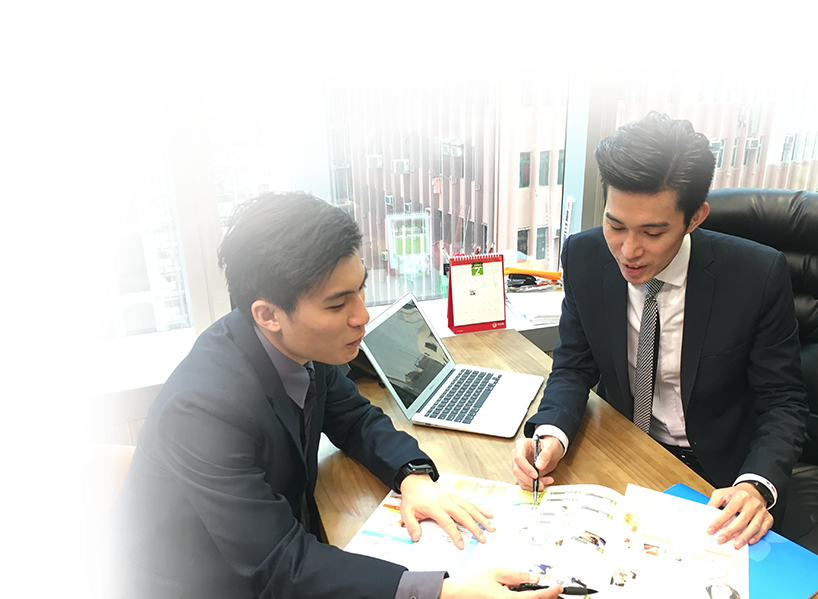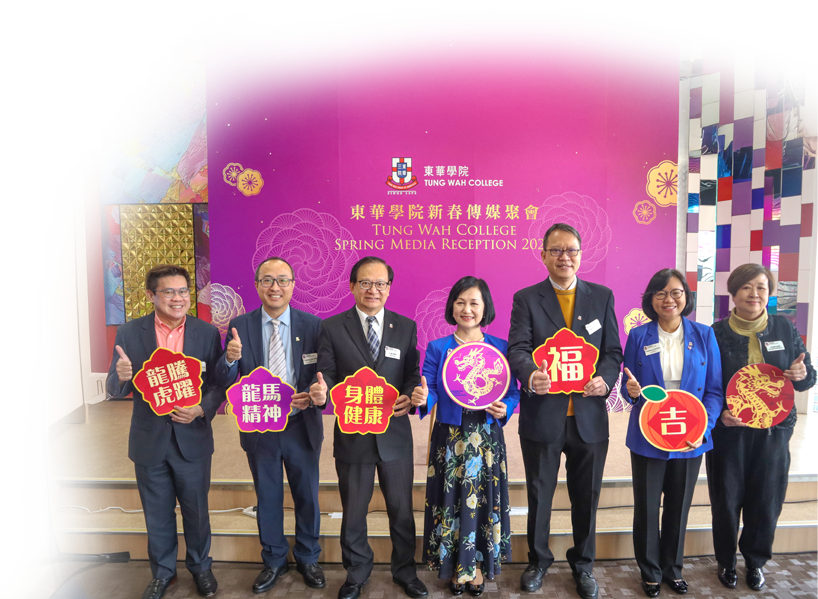

-
Bachelor’s Degree Programmes
-
Sub Degree ProgrammesDiploma ProgrammeCertificate Programme
-
Mainland Admission

 Administration Units
Administration Units
 News & EventsDr. Larry AUYEUNG (歐陽裕曦博士)Senior Lecturer (高級講師)
News & EventsDr. Larry AUYEUNG (歐陽裕曦博士)Senior Lecturer (高級講師) Office: 6/F, School of Arts and Humanities, 136A, Nathan Road, Kowloon, Hong Kong
Office: 6/F, School of Arts and Humanities, 136A, Nathan Road, Kowloon, Hong Kong
Telephone: 3190 6792
Email: [email protected]Biography
Dr. Larry Auyeung is a Senior Lecturer in the School of Arts and Humanities at Tung Wah College. He obtained his bachelor's degree from the Chinese University of Hong Kong and continued his postgraduate studies, earning a master's and PhD in public health and psychology from the same university. Dr. Aueyung's research primarily focuses on promoting public mental health, cyberpsychology, and digital mental health.Recently, Dr. Auyeung has developed a keen interest in understanding the users' perspective of digital and non-digital mental health for common mental disorders. He recognizes the significance of involving individuals in their own care, as it empowers them to develop the necessary skills and confidence to effectively manage their health conditions and make informed decisions. Moreover, the insights gained from the users' perspective also enable service providers and health policy makers to better understand how to provide services that genuinely align with the needs of society, marginalized groups, and each individual.
Academic and Professional QualificationsBSocSc, MPH, PhD
EducationDoctor of Philosophy, Department of Psychology, The Chinese University of Hong Kong(Hong Kong)Master of Philosophy, Department of Psychology, The Chinese University of Hong Kong (Hong Kong)Bachelor of Social Science, Department of Psychology, The Chinese University of Hong Kong (Hong Kong)
Teaching AreasGerontechnologyAppreciating Social ResearchPersonality Theories and Individual DifferencesEmpowering Process in the Welfare Settings
Research InterestsPerson Centred CareDigital Mental Health / Internet-Based Cognitive Behavioural TherapyPositive Psychology / Well-beingInvolvement in Funded Projects
Improving Mental Well-Being Among Secondary and College Students with Special Educational Needs: Can Furhat Social Robot Be as Efficacious as Humans and Computers in Facilitating Self-Disclosure and Self-Compassion? Designated Research Grant (Ref: DRG2024-02)*Involvement during grant application (Co-PI)Does Specific App Features and Evidence Base Matter to Uptake? A Discrete Choice Experiment (DCE) to investigate Preferences and Willingness to Pay for a Mental Health Mobile App among People with Elevated Depressive Symptoms. Faculty Development Scheme (Ref: UGC/FDS17/H02/24)*Involvement during grant application (PI)How Fitspiration Promotes Disordered Eating Behaviors Among Sexual Minorities Rather Than a Healthy Lifestyles: A pan-theoretical investigation of Tripartite Influence Theory and Objectification Theory. School Research Grant 2023-2024 (Ref: 2023-05-52 SRG230501)*Involvement during grant application (PI)The Double-Edged Sword of Social Media Use on Well-Being among Sexual and Gender Minority (SGM) people: Social Media as an arena for both Online Social Support, Digital Harassment and Abuse. College Research Grant 2023/2024 (Ref: CRG2023/07)*Involvement during grant application (PI)AR-Recovery Gallery - Seeing My Voice (“看見我的聲音”): Photovoice as a Digital Learning Tool to Acquire Non-Stigmatizing Attitudes and Recovery Knowledge Towards Individuals with Lived Experience of Psychiatric Disorders for Healthcare Students. College Research Grant 2023/2024 (Ref: 2023-00-57 CTG230503)*Involvement during grant application (PI)Beyond Efficacy- Eliciting Preference for Face-to-face and Internet-based Psychotherapy among people with depression: Using Discrete Choice Experiment to advance future service implementation. Research grants council, the General Research Fund Amount Awarded*Involvement during grant application (Project key working member; dissertation study): research conceptualization, statistical consultation and drafting proposalInternet-based Mindfulness-based Training (iMBT) for People with Depression: Investigation of its efficacy and mechanism of change. The Chinese University of Hong Kong, Direct Grant Amount Awarded*Involvement during grant application (CO-I): research design, statistical consultation and drafting proposalUnderstanding Mental Disorders and Promoting Mental Health: Psychosocial and Cultural Factors and Interventions. Sub-project 2: Feeling about feelings: Using ecological momentary assessment (EMA) to understand valuation of emotional experiences and depression in daily life. The Hong Kong Polytechnic University (PolyU), the Management Committee (MC) of the Mental Health Research Centre (MHRC) Seed Fund application. Amount Awarded:*Involvement during grant application (CO-I): research design, software quotation and drafting proposalInvolvement in Press Interview
Fung, K. (2024). Hong Kong’s Chinese University launches AI chatbot to provide mental health support amid rising demand for counselling services. SCMP. https://www.scmp.com/yp/discover/news/hong-kong/article/3259639/hong-kongs-chinese-university-launches-ai-chatbot-provide-mental-health-support-amid-rising-demand
王玥晨. (2024). 銀髮及心理服務需求增難滿足 東華學院課程結合科技孕育應用專才 原文網址: 銀髮及心理服務需求增難滿足 東華學院課程結合科技孕育應用專才 |. 香港01. https://www.hk01.com/社會新聞/1036341/銀髮及心理服務需求增難滿足-東華學院課程結合科技孕育應用專才?utm_source=01appshare&utm_medium=referral
香港01. (2024). 應用學位大解構. https://www.youtube.com/watch?v=cwKQjbYVm64
Publications
Auyeung, L., Tsang, E. Z., & Mak, W. W. (2025). Using the Unified Theory of Acceptance and Use of Technology (UTAUT) to design an online Direct-to-consumer marketing of internet-based cognitive behavioral therapy for people with depression: Randomized controlled trial. Computers in Human Behavior Reports, 19, 100695.
Auyeung, L., Mak, W. W., Tsang, E. Z., & Yang, P. L. (2025). Impact of a Digital Decision Aid When Choosing Between Face-to-Face and Guided Internet-Based Psychological Interventions for Depression Among Chinese-Speaking Participants in Hong Kong: Randomized Controlled Trial. Journal of Medical Internet Research, 27, e54727.
Auyeung, L., Mak, W. W., & Tsang, E. Z. (2024). Service Attributes and Acceptability of Digital and Nondigital Depression Management Methods Among Individuals With Depressive Symptoms: Survey Study. JMIR Formative Research, 8, e55450.
Chow, J. C., Mak, W. W., & Auyeung, L. (2023). Brief Compassion Training Reduces Intergroup Psychological Barriers: An Experimental Study. Mindfulness, 1-12.
Auyeung, L., Ella T., Mak, W. W. (2022, March) Understanding what People Value in Psychological Services and the Acceptability of Digital and Non-Digital Treatments from People with Depression In The 13th Asian Conference on Psychology & the Behavioural Sciences (Tokyo)
Auyeung, L., Ella T., Mak, W. W. (2021, April) Direct-to-Consumer Marketing (DTC) of Internet-based Cognitive Behavioral Therapy(iCBT) using brief promotional video: Mapping modifiable mechanisms in Pre-treatment Acceptance. In The 29th European Congress of Psychiatry. https://info.kenes.com/epa21/index.html
Mak, W. W. S., Fu, A. C. M., Auyeung, L., Cheng, W. W. L., Chan, R. C. H., Tse, S. S. K., …Wong, S. (2021). Nine-Month Longitudinal Impact of Peer Support Workers’ Recovery Attributes on Service Users’ Recovery in Hong Kong. Psychiatric Services (Washington, D.C.), 72(11), 1282–1287. https://doi.org/10.1176/appi.ps.202000006
Auyeung, L., & Mak, W. W. (2019, May) To what extent does placebo effect explain the effect of iCBT on depression? An Active Controlled Trial of Internet-based Cognitive Behavioral Therapy(iCBT) In International Symposium on Digital Health (pp. 48).
Auyeung, L., & Mo, P. K. H. (2018) The Efficacy and Mechanism of Online Positive Psychological Intervention (PPI) on improving Well-being among Chinese University Students. Journal Of Happiness Studies. http://link.springer.com/article/10.1007/s10902-018-0054-4
Auyeung, L., & Tse, W. (2017). Why Does Digit Ratio Research Fail to Give Any Implication Regarding the Organizational Effect of Prenatal Androgen?. Journal Of Individual Differences, 38(1), 36-45. http://dx.doi.org/10.1027/1614-0001/a000220
Students Supervision
#Pan, J. H., Wu, A., Cheung, K. T., & Auyeung, L. (2025). Negative, but not positive, self-compassion explains additional variance in academic stress over and above adversity among tertiary students. Paper presented at the PP 2.0 International Conference 2025.
#Lam, C., & Auyeung, L. (2024). Sexist events diminish self-love: The mediating role of reduced self-compassion in the impact of sexist experiences on women's depression. Paper presented at the 7th International Conference on Gender and Sexuality.
#Siu, S. Y. Y., & Auyeung, L. (2024). When women hate women: The moderating role of hostile sexism on the relationship between sexist experiences and reduced self-esteem among women. Paper presented at the 7th International Conference on Gender and Sexuality.#Capstone project students
Academic StaffNEWS & EVENTS
-















